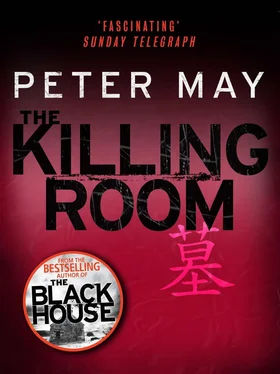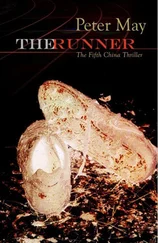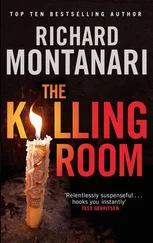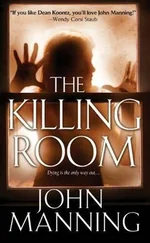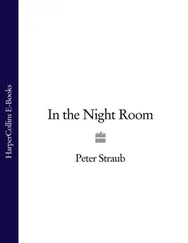Peter May - The Killing Room
Здесь есть возможность читать онлайн «Peter May - The Killing Room» весь текст электронной книги совершенно бесплатно (целиком полную версию без сокращений). В некоторых случаях можно слушать аудио, скачать через торрент в формате fb2 и присутствует краткое содержание. Год выпуска: 2012, Издательство: Quercus, Жанр: Триллер, на английском языке. Описание произведения, (предисловие) а так же отзывы посетителей доступны на портале библиотеки ЛибКат.
- Название:The Killing Room
- Автор:
- Издательство:Quercus
- Жанр:
- Год:2012
- ISBN:нет данных
- Рейтинг книги:5 / 5. Голосов: 1
-
Избранное:Добавить в избранное
- Отзывы:
-
Ваша оценка:
- 100
- 1
- 2
- 3
- 4
- 5
The Killing Room: краткое содержание, описание и аннотация
Предлагаем к чтению аннотацию, описание, краткое содержание или предисловие (зависит от того, что написал сам автор книги «The Killing Room»). Если вы не нашли необходимую информацию о книге — напишите в комментариях, мы постараемся отыскать её.
The Killing Room — читать онлайн бесплатно полную книгу (весь текст) целиком
Ниже представлен текст книги, разбитый по страницам. Система сохранения места последней прочитанной страницы, позволяет с удобством читать онлайн бесплатно книгу «The Killing Room», без необходимости каждый раз заново искать на чём Вы остановились. Поставьте закладку, и сможете в любой момент перейти на страницу, на которой закончили чтение.
Интервал:
Закладка:
‘I’m sure the victims will be sorry to hear that,’ Li said.
Wu smirked and reaching over to the rear seat heaved a fat folder into Li’s lap. ‘That’s the file on the girl we found in Beijing. You’ll have time to refamiliarise yourself with it on the flight, which leaves …’ he checked his watch, ‘… in a little over two hours.’ He grinned. ‘Just enough time for you to pack an overnight bag.’
*
Li sat on the edge of the bed, watery sunlight slanting in from the street through the last dead leaves clinging to the trees that shaded Zhengyi Road in the summer. A kindly face smiled down at him from the wall, a tumble of curly black hair, streaked with silver, swept back from a remarkably unlined face — his Uncle Yifu, with whom he had lived for more than ten years on the second floor of this police apartment block in the Ministry compound. Li still missed him. Missed the mischief in his eyes as he endeavoured to trip Li up at every turn, imparting the experience of a lifetime, teaching him to think laterally. While the devil might be in the detail, therein also lies the truth , he used to say. Li still ached when he remembered the circumstances of the old man’s death. Woke frequently in the night with the bloody image skewered into his consciousness. This had been Yifu’s room, and now it was Xinxin’s. She often asked Li to tell her stories about the old man who smiled down at her from the wall. And he always made the time to tell her.
Now, reluctantly, he stood up and wandered back to his own room. He was destined, it seemed, to be forever haunted by Yifu. With every failure, his uncle was cast up to him as an example he should follow. While every success was attributed to the old man’s influence. Those who were jealous of his status and achievements put them down to his uncle’s connections. And those senior officers who had worked with his uncle made it clear that his footsteps were much too big for Li to walk in. And through every investigation he felt the old man’s presence at his shoulder, his voice whispering softly in his ear. No use, Li, in worrying over the might-have-beens. The answer’s in the detail, Li, always in the detail. It is a good thing to have a broken mirror reshaped. Where the tiller is tireless, the earth is fertile . He’d have given anything to hear that voice again for real.
Quickly he stripped out of his uniform and felt the freedom of release from its starched constraint. He pulled on a pair of jeans, a white tee-shirt and his favourite old brown leather jacket, and began packing some clothes into a holdall. One of Xinxin’s books lying on the chest of drawers caused him to pause. He would need to arrange for Mei Yuan to look after the child while he was gone. And there was no Margaret to step into the breach.
He sat for a moment lost in thought, then reached over and lifted Margaret’s hairbrush from the bedside table and teased out some of the hair trapped in its teeth. It was extra fine and golden in the pale sunlight. He put it to his nose and smelled her perfume, experiencing a moment of acute desire, and then emptiness. He ran his hand lightly across the unmade bed where they had so often made love, and realised that he missed her more than he knew.
III
Margaret had never quite understood the Irish concept of the wake — a celebration of the life, rather than a mourning of the death. How could you celebrate a life that was gone, something that once was vital and full of hope and warmth and giving, that now was cold and dead? Like the procession of bodies that had passed through her autopsy room, all animation extinct, just meat on a slab.
She could not bear to think of her father like that. She had not even had the courage to view his body, laid out in his coffin, colour carefully applied to his face by the mortician in an attempt to create the illusion of life. In any case, she knew, it was not her father who lay there. He had long vanished, existing now only in the memories of others, and in flickering, fading images on old home movies from the days before video tape. They had never bought a video camera.
There were always the family photo albums. But Margaret felt that these fixed, two-dimensional images rarely caught the person. They lacked the spirit that was life and character, a personality. They were just moments in time without any reference point.
She heard voices raised in laughter coming from the living room, the chink of glasses, and felt resentful that these people should come into her father’s home on the day he was buried and take his passing so lightly. She slipped out of the kitchen and moved down the hall to the room at the back of the house which had been his den. She shut the door on the sounds of the wake and listened to the silence. The room was laden with it, what little light remained of the late afternoon soaked up by the heavy net curtains. If there was anything left of him, it was here in this room where he had spent so much time. She breathed in the smell of him in the dry, academic atmosphere of his own private space. Everything had been left as it was from the day he dropped dead in his lecture room at the university from a massive coronary thrombosis. Quick, painless, completely unexpected. The best way to go, Margaret thought, except for those who remained, devastated by the suddenness of it, left to cope with the huge hole it made in all their lives.
She wandered around touching things. His books, hundreds of them gathering dust on the shelves. All the great modern American writers. It had been his subject, his speciality. Steinbeck, Faulkner, Fitzgerald and, of course, Hemingway, who had grown up just a few streets away in this quiet upscale Chicago suburb. All thumbed and marked and annotated. She picked one out. Winesburg, Ohio , a collection of short stories by Sherwood Anderson. The pages were yellowing now around the edges, the paper dry, almost brittle. It fell open at a story called Hands . She remembered it. A sad story about a simple man whose love of children led to a tragic misunderstanding. There were copious notes down the margins in her father’s tight distinctive handwriting, the hallmark of a generation.
She moved to his desk. A piece of English reproduction furniture. Mahogany, with red leather inlay. It was chipped and scarred from years of use. Papers and books were piled untidily around his iMac desktop computer. A half-smoked pipe lay in an ashtray, the pale scrapings of his teeth around the mouthpiece of the black stem. As a child she had loved the sweet smell of his tobacco. She ran her fingers lovingly round the smoothly polished cherrywood bowl. He had no doubt intended to relight it. Now he never would.
In a frame to the left of the computer, partially obscured by a pile of unmarked exam papers, was a photograph of Margaret in her graduation gown. She moved the papers to get a better sight of it, and felt a strange ache as she saw the young face below the mortar board gazing back at her out of the picture, full of hope and youthful idealism. She wondered how often her father had looked at it in idle moments. Wondered what he had thought of her. Had he been proud or disappointed? As a little girl she had adored him. And he had given her so much of his time, so much of his love. But since her teens they had not been particularly close, and now she regretted it. It had been her fault. She had been too busy making a life for herself that had nothing to do with her parents. A life that had turned to failure and disappointment. And now there was no going back. No way to say, Sorry, Dad, I loved you really. She quickly turned the frame face down on the desk and turned on the computer, just for something to do. It whirred and hummed as it booted up its operating system, before presenting her with its desktop screen. From here she could access all his files. Mainly they were word-processing documents. Lectures, notes for students, a critical analysis of some new American classic. There were letters, too. Hundreds of them. But she had no interest in violating his privacy.
Читать дальшеИнтервал:
Закладка:
Похожие книги на «The Killing Room»
Представляем Вашему вниманию похожие книги на «The Killing Room» списком для выбора. Мы отобрали схожую по названию и смыслу литературу в надежде предоставить читателям больше вариантов отыскать новые, интересные, ещё непрочитанные произведения.
Обсуждение, отзывы о книге «The Killing Room» и просто собственные мнения читателей. Оставьте ваши комментарии, напишите, что Вы думаете о произведении, его смысле или главных героях. Укажите что конкретно понравилось, а что нет, и почему Вы так считаете.
